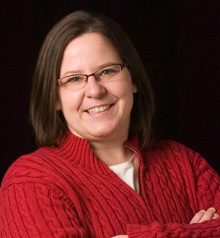Toxicology and Societies Speaker Series - Michelle Crimi

Date
End Date
Location
Virtual
Event Description
Title: The Challenges of Treating PFAS - The Forever Chemicals
Per- and polyfluoroalkyl substances (PFAS) are a stable, synthetic class of chemicals ubiquitously contaminating environmental media (air, soil, biota, surface water, and groundwater). Because regulatory guideline concentrations for PFAS are 3-4 orders of magnitude lower than concentrations measured to date at several sites, cost effective treatment approaches are needed that consider the unique chemical properties (high solubility, low volatility, emulsification behavior, recalcitrance, and presence as mixtures) of PFAS. This presentation will present viable approaches for treating recalcitrant PFAS and recent related research activity. Technologies of particular focus include sonolysis, and plasma treatment. Challenges and limitations of these approaches, including the presence of PFAS precursors and co-contaminants, and generation of byproducts will be discussed. The presentation will also highlight recent research to advance and optimize PFAS treatment technologies, with a particular emphasis on treatment trains for more efficient and effective remediation. The presentation will also address socioeconomic challenges of addressing PFAS contamination.
About the Speaker: Michelle Crimi, Clarkson University
Michelle Crimi is a Professor jointly appointed in Civil & Environmental Engineering and Engineering & Management at Clarkson University. Her research focuses on developing in situ treatment technologies for groundwater contamination, determining the impact of groundwater technologies on aquifer quality, and integrating treatment technologies for optimized risk reduction. Her projects are often conducted in partnerships with industry and consulting organizations and have a strong technology transfer focus with the objective of moving technologies from the laboratory to full scale adoption by developing guidance, tools, protocols, and workshops to support field application. She has been PI or co-PI on several research projects focused on treating emerging contaminants, funded primarily by the U.S. Department of Defense’s Strategic Environmental Research and Development Program (SERDP) and the Environmental Security Technology Certification Program (ESTCP). She earned her B.S. in Industrial Hygiene and Environmental Toxicology from Clarkson University, her M.S. in Environmental Health from Colorado State University, and her Ph.D. in Environmental Science and Engineering from the Colorado School of Mines. She spent the 2014-2015 academic year as a Fulbright Scholar at the University of KwaZulu-Natal in Durban, South Africa.
Watch the video recording of Michelle's presentation.
Featured Image
Featured Image
